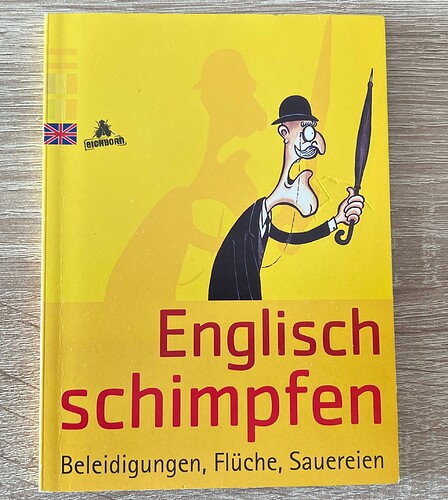My niece asked me to help her learn/practice English tenses, which is one of my biggest weak points in English. But I figure that just means we’ll both be learning.
Now, I tried to find a good (free) infographic giving an overview of all the tenses. The stuff I did find was very much meh. So, I thought I’d ask here: do you know any good resources for practicing English grammar, especially tenses? Do you have a link to a brilliant infographic?
This might be @deltaandthebannermen’s forte ![]()
Kinda depends on how she prefer to learn, actually. Infographs might work for her, might not. I find reading/listening/watching stories I like really help getting the grammar and vocabulary into my head in a bottom-up way, so I became somewhat-fluent only after diving into the world of Big Finish ![]()
As for infographs, I don’t usually study in that way so can’t give any recommendations. But from what I’ve learned about learning (I major in psychology), you’ll absorb the knowledge much better if you put together the infographs yourself. So maybe get a grammar book for reference, and draw the graph with your niece?
Now you would think this wouldn’t you…
There is terminology we teach at KS2 (7-11 year olds) which they are then tested on in Y6 (11 years old) before they go to high school. They need to know the different between past and present and how verbs are changed. There some talk about past and present perfect and other variations (things like ‘she has been working’ or ‘he had travelled’) but to be honest none of it is that important. Ultimately, most tense understanding comes from using it in sentences on a daily basis and what sounds ‘right’. Sadly, that’s becoming more and more difficult to discern simply because of the number of people who speak poorly grammatically (They was happy with that, for example, instead of ‘they were’.)
(And don’t even get me started on ‘could have’ or ‘could of’…)
This has confused me for a long time. Why native speakers cam make so little sense so often??? It’s not like it’s a dialect like AAVE in which they have a different grammar system with similar words as school English ![]()
I do feel like personally real understanding came with a lot of exposure only, but I can have a look through my old school folders this evening, I feel like I’ve still got some helpful things on the difference between things like simple present/past and their progressive versions especially, since those are differences German doesn’t have.
She actually absorbed an astonishing amount of what I’d call ‘speaking competency’ through watching Minecraft YouTube. (Proud uncle speaking here. ![]() )
)
But there are gaps in the basics that, at least from my perspective, hinder her growth. And she is actually aware of it herself (without me talking about it with her), so it could be true.
So the thought is to add some theoretical stuff into the mix and at the same time not make it so boring—hence, an infographic. If it helps, good. If not, nothing lost. ![]()
Vielen lieben Dank, aber mach dir keine extra Arbeit. Sonst habe ich noch ein schlechtes Gewissen. ![]()
tenses are just so complicated when learning a language… i’m learning french and boy is it difficult.
While looking for the educational poster I vividly remember, I did not find the poster, but I did find this gem: English swear words - insults, curses, filthy language.
Finally, I will have the words to express my true feelings. ![]()
One thing I find fascinating also is non-English learners when they learn the language, if they learn the British version or American version of a word. Since moving in with my French husband on several occasions I’ve had to say “It’s a hoover!” ![]()
Are you saying ‘hoover’ is the British or American version because, yes, it is often called a hoover but vacuum cleaner is technically ‘more’ correct as ‘hoover’ is a brand name.
One of the main things where I notice my English is not that of a native speaker is the fact that I truly can’t distinguish between American and British English. I learned mostly British English in school but we also did American English for a few years and then I just picked things up wherever. There are many words where I don’t know which they are and I have great difficulty distinguish between accents, unless I very consciously try to.
One of the perks of English is that even if your grammar, or sentence structure, is off slightly, generally it can be understood by a native speaker. It works better in spoken English, but written English is trickier, but still works.
But I have nothing to add to this conversation. I work with a lot of people who have English as a second, or third, language, and they mostly learnt from watching TV, or trial-and-error.
